== 410 BC ==
While our garrisons in Newfoundland suffered great damage, shocking news came in:
Israel betrayed Germany and signed a peace treaty with Greece halfway through the agreement! We made a note to teach the monotheists a lesson.
-- Battle of Newfoundland --
In 410 BC, Germany's fleets were just outside Newfoundland. Asian Pirates and European Pirates led the charge, with small-scale Privateers and more large warships following behind. The goal of the fleet? Crush the Greek ships harassing Leipzig, and finally break Greece's naval back.
The crew of the Greek Pirates numbered 140 men - it had been reduced from 190 through extensive shelling. The Asian ship, on the other hand, had 600 men aboard. Such was their size and capacity.
Amazingly, the Asian fleet was nearly destroyed - it lost 94 percent of it's crew in the battle. The ship was then put under the protection of some support vessels, and it would go to the port of Leipzig - which was now once again open.
-- Battle of the Western Atlantic --
Young Greek seamen were awoken by the sound of cannons firing. "All men on board! All hands on deck!" the ship's commanders shouted.
When they reached the surface of the vessel, they saw they were being besieged by a Pirate force of 360 men. By comparison, they had 160 men...and shrinking as cannons unloaded onto the vessel. By the time the saturation had ended and the main attack force approached, only 100 men remained in fighting condition. They prepared for the worst. Before being defeated, they managed to put 90 of the enemy ship's men out of commission. It too set sail for Leipzig as the burning remnants of the opposing vessel sank into the sea.
-- Battle of the Canary Islands --
Citizens of the Canary Islands were awoken as the cold chill of morning came through. But it was not the cold - but the sound of gunshots. They all scrambled into the streets, and they were shaken by what they saw - GERMAN TROOPS!
1800 Knights and 3,400 musketmen were on the Eastern half of the island, burning and pillaging all they could find. As they neared the capital of the islands, an Asian Pirate Fleet of 750 seamen was raining hellfire down upon them, and smaller-scale Privateers were blowing up fishermen's boats and lighting whole settlements on fire. The end of the islands' Despotate had arrived. 1400 of the city's 1900 spearmen were killed by the ships' gunfire. A small band of 300 swordsmen then took up the defense. One hundred of them were killed by a blast from Privateers, while another band of 300 raised it's swords to fight. And then, they were panicked at the sight of 600 Teutonic Knights.
Despite being outnumbered, the swordsmen fight valiantly - killing 500 Knights and losing only 100 of their own. More Knights approached to fight the spearmen who had taken up arms. 200 of them died killing 200 spearmen. The defenders were far better equipped then those of the motherland!
100 more died killing 200 spearmen. Swordsmen once again took up the defense. They were cut down by a band of musketmen. One hundred Knights gave their lives to slaughter 200 swordsmen.
A band of 400 archers then made itself known. The defenders showed no sign of quitting! 300 musketmen died killing the archers. More musketmen reached the frontline, tiring of the nonstop conflict. They did not lose a single man as they executed 100 spearmen. 200 more musketmen added to the bodies while killing one hundred spearmen. With two hundred more brave Germans lost...
With the Canaries taken, Germany was now able to send ships down the coast of Africa far more securely! Citizens in Cape Verde applauded the conquest. Captured soldiers were worked to death building a harbor, and while they did not get far, they helped greatly reduce the expenses of paid workers. At the cost of a great sum of gold, it was predicted that the islands would soon sport a modern harbor within 10 years, linking them to the heart of the empire.
--
Carthage's lands suffer more bombardment, causing all roads between cities to be destroyed. Hundreds upon hundreds of soldiers are killed by our hired pirates, and we also begin attacking their fishermen - causing malnutrition and starvation. Carthage's position is greatly weakened as a result.
-- Battle of Cydonia --
Germany resumed it's aggressive policies in Crete in the year 410 BC. Our troops arrived from both the east and western ends of the island to find Cydonia in riots! The King had finally been overthrown, executed. He was beheaded and disemboweled publicly for the constant ineffectiveness of the monarchy. Now the island was torn between Republican movements and Generals who desired a military dictatorship. We took advantage of the chaos, and our ships opened fire on the Hoplite forces.
400 of the 600 man garrison was wiped out, and we continued bombardment to destroy the population, which would likely be unreceptive to both foreigners AND a monarchy. When the shelling finally ended...only 10 percent of the population was left alive. Germany had committed near-genocide against the people of Crete.
600 musketmen advanced, losing 200 to kill 100 Hoplites. Another 100 musketmen were killed...and after that, Germany had taken the city of Cydonia. With that, Crete was conquered, and a direct water route to Egypt established. Our control of the Mediterranean stimulated trade, and immigration with government funds would soon revive the decaying towns of Crete.
-- First Battle of Rostov --
Germany besieged the city of Rostov in the very east of Greek Ukraine. The constitutional monarchy there was exceptionally strong, having resisted centuries of attempts by Russia and Turkistan to conquer it. We reduced it's mighty garrison of nearly 5,000 skilled Hoplites to a mere 500. We lacked the force necessary to conquer the city, so we set up camp nearby.
-- Battle of Iceland --
The war with the Vikings drew to a close in 410 BC. After so many millenia of bitter on-and-off war and rivalry, German forces had arrived in Iceland. Once considered impenetrable by the Vikings, it's small garrisons now faced the might of German armies.
The city of Narvik's small garrison of 600 men had been reduced to a mere 200, composed of spearmen and warriors. German muskets would prove a great challenge to the northern tribes. We lost not a single man that day, and the city soon fell into Germany's grasp.
We now had a base in the North Atlantic, we were slowly forming a "ring" around the great ocean.

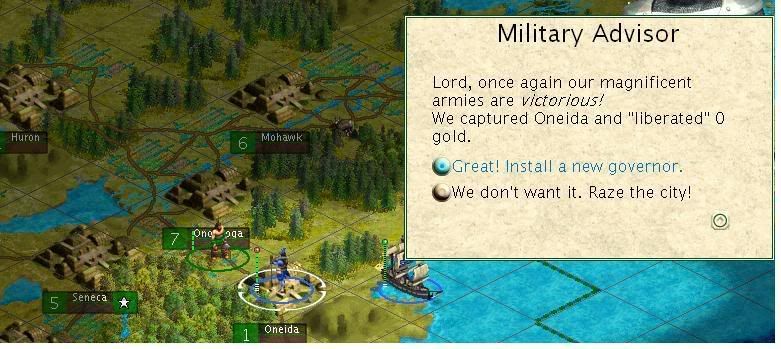
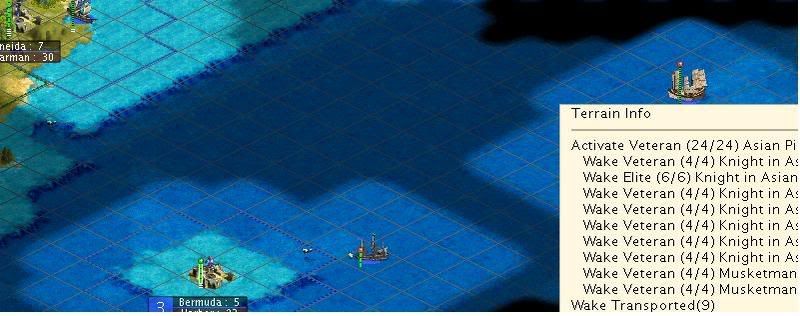

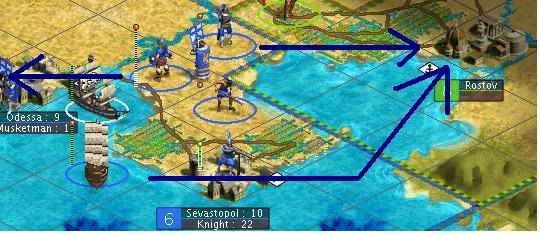
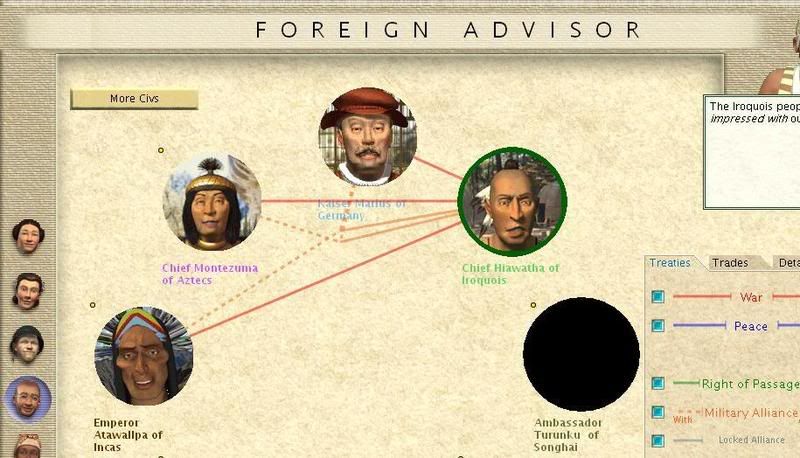


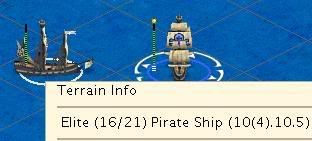

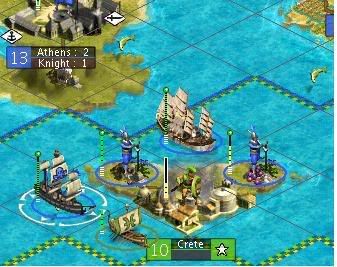
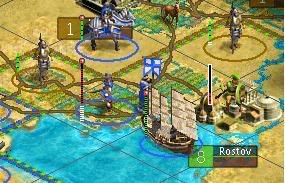
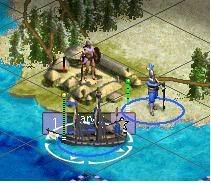
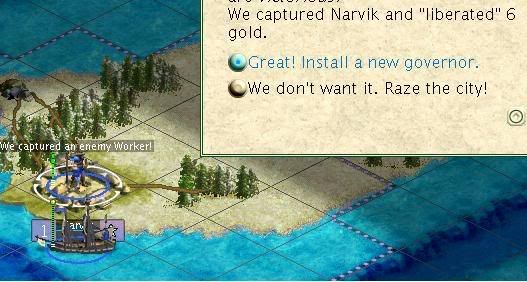
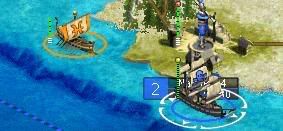


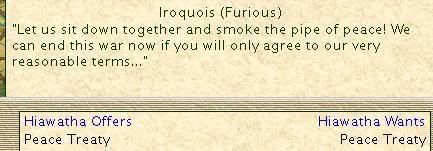


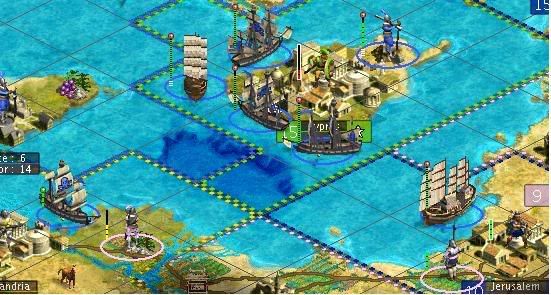

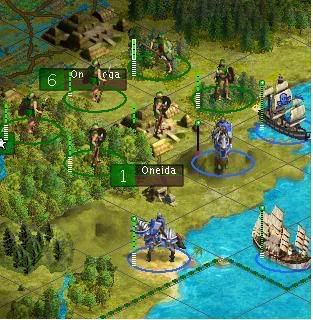
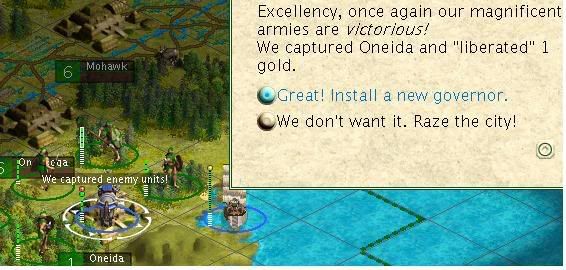
 The reason I'm postponing them is not only do I like some feedback(though that's hard to come across on Civ 3, everyone's flocked to 4...) but as well, the reason I go one turn at a time with logs is to ensure fast reports, AND to take up less space for those with crappier internet connections.
The reason I'm postponing them is not only do I like some feedback(though that's hard to come across on Civ 3, everyone's flocked to 4...) but as well, the reason I go one turn at a time with logs is to ensure fast reports, AND to take up less space for those with crappier internet connections. 









